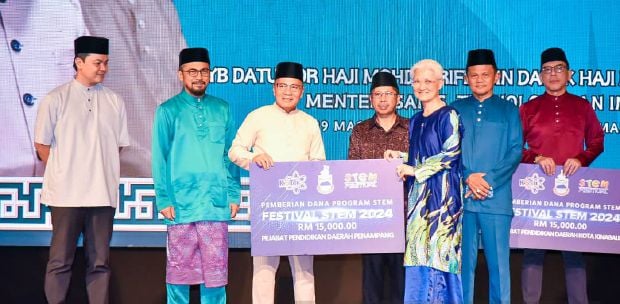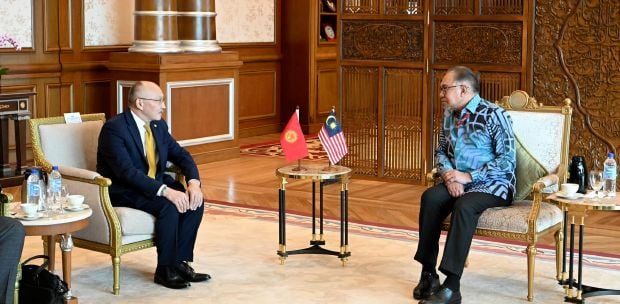Science, Technology, Engineering and Mathematics education, or STEM, has recently come under scrutiny not just in Malaysia, but also in many countries of the world, including the United States.
Policymakers have grown uneasy knowing things are not going well with STEM. There is concern over the declining interest among students. Even those who have taken up STEM have not quite demonstrated the desired outcome.
We have, for example, fared poorly in some of the benchmark international competitions in STEM, such as PISA (Programme for International Student Assessment). In fact, we have even performed poorly compared with some of the new entrants from emerging economies. It’s not for want of trying. How do we address this?
The Academy of Sciences recently hosted a discourse, which brought together the education, higher education, and science, technology and innovation ministries, as well as industry representatives from sectors such as oil and gas, plantation and manufacturing to deliberate on what else can we recommend to the government on STEM.
As usual, the workshops hosted by Mosti talked about the same grouses that have preoccupied previous workshops. Quality of teaching, lack of proper infrastructure, ineffective pedagogy, rural-urban divide in terms of facilities, poor implementation and many more. It was obvious the issues were not new.
There have been many discourses on STEM. The academy has made numerous submissions to the government on actions needed to boost STEM education. In fact, the latest blueprint on education has outlined the approaches needed to address the concern. Yet, we continue to organise workshop after workshop to deliberate on what to do to invigorate interest in STEM.
Many views were expressed as to why past initiatives in STEM have not succeeded. A few raised the issue of lack of implementation of the actions identified. Admittedly, we as a nation are very good at producing plans. Unfortunately, we have difficulty acting on the plans. It is not just the plan for STEM. Many other plans, including Science, Technology and Innovation, Industrial and Agriculture master plans, suffer a similar fate.
The desired outcomes have always alluded us. Some explain we are addicted to aiming for short-term results rather than go for the long haul. We are always in a hurry to demand results. Some attribute the failings to too much interference, which has led to frequent changes in implementation strategies. It is time for change. We can start with STEM.
There is no denying that in the era of innovation and disruptive changes in the technology landscape, a country’s strength in STEM is a definite asset. A strong command of STEM will put us in good stead when it comes to elevating the nation’s competitiveness. STEM is, therefore, an important investment in nation building.
But, we must recognise the fact that STEM education is a journey. A long and arduous one. We should not expect immediate results. We need to implement a mechanism that will eventually lead to the desired outcome. Most of all, we need a system of implementation which allows us to gauge whether we are on the right track or not. We, therefore, need an institutional driver of STEM.
Implementation cannot be on an ad hoc basis because the effective delivery of STEM calls for a coordinated national effort. Stakeholders, including industry, the public and the government, must together work to make STEM a success.
This is where the strategy must embrace the quality approach. This refers to the plan, do, check, action (PDCA) strategy. This is being done under the Outcome Based Education (OBE) approach where the ultimate objective is to implement Continuous Quality Improvement (CQI).
In the accreditation exercise for engineering programmes at universities, OBE and CQI are mandatory. We need to face the fact that all plans have to be dynamic and flexible if they are to have any chance of success. They are living documents.
Plans need to be implemented, monitored and analysed to continuously improve. We need to adopt the same strategy for STEM. This way, future workshops will only discuss ways out of obstacles to deliver progress, and not repeat the grouses.
Dr Ahmad Ibrahim is a fellow at Academy of Sciences Malaysia






